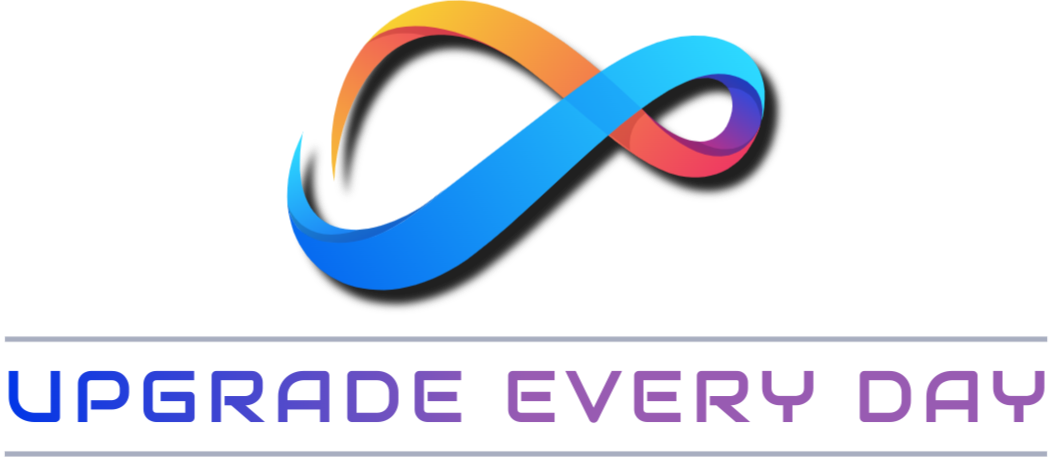Social media’s power in today’s world is huge. Did you know around 4.2 billion people use social media globally? That’s over half the people on earth!
It’s vital to pick the right social media platforms for your business. This ensures you reach as many people as possible and keep them engaged.
Choosing the right social media isn’t just about being everywhere online. It’s about picking platforms that fit your business goals and audience.
In this article, I’ll help you figure out some core concepts for your social media platform selection criteria to understand which social media platforms are best for you. We’ll explore how to make choices that benefit your business.
Let’s get started!
Key Takeaways:
- It’s key to choose social media platforms wisely to hit your target audience and meet your business aims.
- Think about your goals, resources, what content you’ll share, who your audience is, your industry, and what competitors do before you decide.
- Learn the special features and ways of talking on each platform to connect well with your audience.
- Make sure your business type and brand vibe match well with the platforms you choose to show off your products or services.
- Use the right tools and resources to handle your social media well. This saves time and keeps your online presence strong.
Why Does Your Business Need a Social Media Channel?
Social media is key for businesses to get noticed and connect with customers. According to the Sprout Social Index, it helps create communities and boost sales. By using social media wisely, I can reach my marketing objectives.
It boosts my brand’s visibility to more people. Social media lets me share content or deals, reaching potential customers. This way, folks who might not find my business can discover what we offer.
It also lets me talk directly to my customers. By chatting and posting regularly, I build strong bonds and loyalty. This way, I learn what they think and want, guiding my future choices.
Another perk is tracking and understanding data. Social media’s tools show me what my audience likes. With this insight, I can make my marketing even better for my target market.
Building Brand Awareness and Generating Sales Leads
Showing off my brand’s personality and values is vital. Social media helps me do this with consistency. Through engaging posts, I make a memorable brand that attracts the right people.
It’s not just about getting noticed; it’s also about finding potential customers. By promoting my offers smartly, I lure in those interested. Features like call-to-action buttons help turn followers into leads for my business.
Monitoring Competitors and Staying Ahead
Watching rivals on social media is smart. It shows me their tactics and how people respond. This lets me spot chances to stand out, keep up with trends, and tweak my plans to compete better.
Clearly, social media is essential for business today. It helps me stand out, know my market, and keep ahead of rivals. In this digital era, a social media presence is a must for success.
Consider Your Goals and Resources
Picking the right social media is key for your business. Think about what you want to achieve and what you have to work with. Every platform has its own benefits that match different goals.
Social Media Goals:
- Increasing brand awareness
- Generating leads
- Increasing community engagement
Look at what your team can do and how much time you can give to social media. The kinds of content you create matter too. These will influence how well you can use each platform.
By looking at your goals and what you can do, you can pick the right platforms. This makes sure your efforts make a big difference.
“By evaluating your goals and resources, you can make informed decisions about which platforms to focus on.”
Choosing the Right Content Types
Select platforms that fit the content you’re good at making. Think about if you can make images, videos, blog posts, or use user-generated content. Different platforms need different types of content.
If you’re great at making visual content, try Instagram or Pinterest. If writing is your strong suit, LinkedIn or Medium could be better for you. Videos? YouTube or TikTok.
Picking suitable content types helps your social media posts hit home. They’ll share your brand’s story well.
Allocating Time and Resources
Before nailing down your social media platform selection, think about the time and stuff you can spend on social media. Some platforms need more updates and more chatting. Others don’t need as much attention.
Make sure your team can handle the daily work and that you have enough people and tools. If your team is small, it’s smarter to just focus on a few platforms.
| Platform | Time Requirement | Engagement Level |
|---|---|---|
| High | High | |
| Moderate | High | |
| X | High | Moderate |
| Moderate | Moderate |
Taking a good look at your resources lets you choose wisely. You can manage your social media well and make it work for you.
Know Your Audience and Industry
It’s vital to understand who you’re talking to and what they like. This is key in picking the right social media spots. By looking at your site data and seeing what platforms your buyers use, you can choose wisely where to put your social media work.
The data from your website tells you a lot about where your audience spends their time. Looking at traffic, how people engage, and where they come from helps you see where they’re active.
Also, seeing what your competitors do on social media shows you what works in your field. Checking out their online presence and how people react to them lets you spot if those platforms fit your business too.
Analysing competitors doesn’t just show you what they’re good at. It reveals gaps in the market you can fill. Spotting their weak spots helps you stand out with a unique social media plan.
Being clued up about your audience and field helps you pick the best social media platforms. Website stats and competitor checks guide your strategy. This ensures it meets your business goals.

| Platform | Target Audience | Industry Presence | Engagement |
|---|---|---|---|
| Wide range of age groups and demographics | Popular across various industries | High potential for engagement through comments, likes, and shares | |
| Youthful demographic, visually-focused content | Popular for lifestyle, fashion, and beauty industries | High engagement through likes, comments, and direct messages | |
| Wide range of age groups, news-oriented audience | Popular for media, entertainment, and technology industries | Real-time engagement through retweets, replies, and hashtags | |
| Professionals, B2B audience | Popular for business, consulting, and recruitment industries | Engagement through networking, industry insights, and job postings |
Research Platforms and Their Uses
Choosing the right social media platforms is vital for marketing. Each one is unique in how it communicates. To effectively target and engage with your audience, understand these platforms well.
Consider what kind of content each platform prefers. Instagram loves visuals, perfect for image-heavy brands. X (formerly Twitter), with its character limit, favours short, catchy messages. Matching your content to the platform boosts your impact.
Posts live differently on each platform. In social media’s quick pace, knowing how long your posts last is useful. A tweet’s life is short, while an Instagram post might attract likes for longer.
Hashtags play a big role in choosing a platform. They sort content and make it easier to find. Instagram and X, for example, use hashtags a lot. Using popular hashtags gets you noticed by more people.
Example: Utilising Hashtags Effectively
I found #throwbackthursday popular among my audience on Instagram. Including it in my travel agency’s posts brought in new followers and more interest.
Researching social media platforms deeply helps make good choices for your brand. Knowing about communication, content, post lifespan, and hashtags lets you fine-tune your strategy. This knowledge improves your social media impact.
Now, consider how your company type and brand personality should guide your choice of social media platform.
Consider Your Company Type and Brand Personality
Choosing the right social media for your business requires understanding your company type and brand personality. These elements are key in picking platforms that truly reflect your business and engage your target audience.
For visually oriented brands like fashion stores or interior design firms, Instagram and YouTube are ideal. These sites are perfect for sharing stunning images and videos. This helps to build a strong visual link with your brand.
B2B companies, however, might favor LinkedIn. This site is designed for professional networking and sharing industry knowledge. It allows B2B businesses to post insightful content, connect with potential partners, and showcase their industry expertise.
It’s essential to consider what makes your business unique. Then, choose platforms that support your goals and connect with your audience. Whether your aim is to enchant with visuals or to exchange professional insights, the right social media platform selection can boost your brand’s visibility and online impact.
Manage Your Social Media Channels Effectively
Managing social media channels can take a lot of time. To be efficient and effective, you need the right tools and resources. Here are important tips for managing your social media well:
Allocate Adequate Resources and Time
Think about how much time and how many people you have to work on your social media. Choose specific people to manage daily tasks, create content, and handle conversations. Having enough people and resources lets you keep active on your channels and reply quickly to your followers.
Utilise Social Media Management Tools
Social media tools can make your work easier and more productive. These tools let you schedule posts ahead of time, control several accounts from one place, and watch your progress with analytics. Some well-known tools are Hootsuite, Buffer, and Sprout Social.
Did You Know? Using social media tools saves time and effort. They let you plan posts ahead and handle many accounts from one platform.
Analyse Performance with Analytics
Use analytics tools to regularly check how your social media is doing. These tools offer insights into engagement, reach, how your audience is growing, and how well your posts are doing. Understanding what your audience likes helps you improve your content and make your social media better.
Engage with Your Audience
It’s key to connect well with your audience to build loyalty. Answer comments, messages, and tags fast. Join in on conversations that matter to your field. This helps build trust in your brand and creates a community feel.

Remember, social media needs regular work and attention. Keep up with new trends and features on each platform. This helps you get the most from your social media.
Social Media Platform Selection - My Conclusion
Choosing the right social media for your business is key. It helps to shape a strong marketing strategy and boost your online visibility. Think about your goals, resources, audience, industry, and competitors. This way, you decide better on which platforms to use.
Social media is getting more popular. So, putting effort into social media is essential to keep up with others. Make your content fit each platform. Also, check your strategy regularly to keep on succeeding.
Effective marketing means picking the right social media channels, creating engaging content, and connecting with your audience. Social media lets you build a solid online presence and reach your ideal customers better. Start now to enhance your marketing outcomes!
FAQ
What factors should I consider when selecting social media platforms?
Think about what you want to achieve and the resources you have. Also, consider the type of content you’ll post and who you want to reach. It’s wise to look into where your industry is active and what your competitors are doing. Don’t forget about the tools for managing your platforms.
Why does my business need a social media channel?
Social media helps to boost your visibility and connect with both new and existing customers. It’s great for enhancing your brand, getting sales leads, and keeping an eye on competition. These channels support community building, data collection, and can increase sales effectively.
How should I consider my goals and resources when selecting social media platforms?
Aligning your social media objectives with your business goals is crucial. Look at what resources you have, like a dedicated team, time, and types of content you can create.
How can I understand my target audience and industry to select the right social media platforms?
Look at your website data to see where your current customers hang out online. Doing a competitor analysis will also show you where your rivals are and their success rate on each platform.
What should I research about social media platforms and their uses?
Know the ins and outs of each platform, including how people communicate there and what they expect. Think about what content fits best on each platform, how long posts last, and how to use hashtags effectively.
How should I consider my company type and brand personality when selecting social media platforms?
Match your company’s unique features with platforms that fit your goals and audience. For instance, brands that are visually driven may prefer Instagram and YouTube. Meanwhile, B2B companies might find LinkedIn better for networking and insights sharing.
How can I manage my social media channels effectively?
Look at your available time and team capacity alongside necessary software and tools. Use social media management tools to help plan your posts, understand performance, and interact with your audience. This makes managing various channels easier and helps keep a consistent presence online.
Why is choosing the right social media platforms important for my business?
Selecting suitable social media platforms is key for a strong marketing plan and online visibility. By evaluating your goals, available resources, intended audience, industry presence, and competitors, you can choose platforms wisely.





